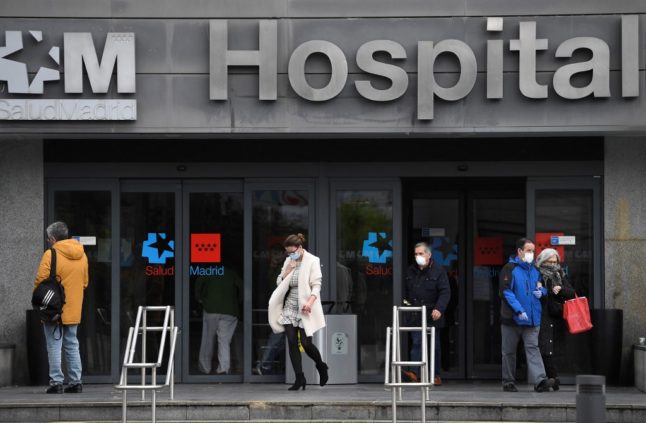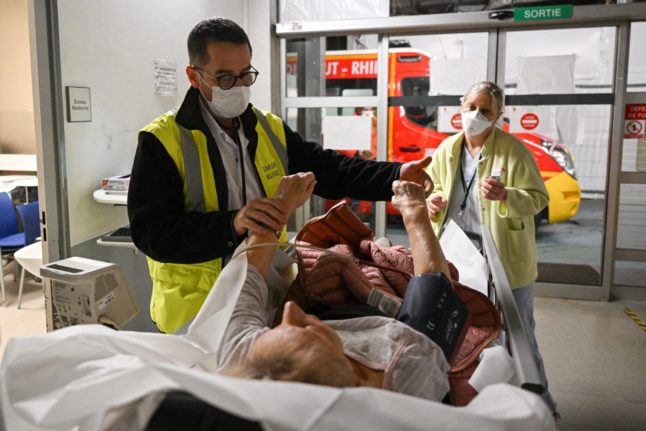What is the convenio especial?
The convenio especial (which translates to ‘special agreement’) allows foreigners in Spain to pay a monthly sum into the country’s public health system to have access to it, even if they don’t have access to Spain’s social security system through work or a pension (a Spanish one or one that’s transferred from your home country such as the S1 scheme for British pensioners) .
READ ALSO – Healthcare in Spain: the steps to apply for the S1 form for UK state pensioners
To access it, you will pay a monthly fee of €60 if you are under 65 and €157 if you are over 65.
Spain’s public health system is widely regarded to be among the best in the world, but before you decide to opt for the convenio especial, consider the advantages and disadvantages that it will bring you as a foreigner in the country.
What are the pros of the convenio especial?
- You are able to access Spain’s public health care system
As stated earlier, even if you’re not working or paying social security through self-employment in Spain, you will still be able to have access to public healthcare via this special agreement.
- You will be fully covered by the public health care system
Even if you have pre-existing conditions, you will be fully covered by the public system. This is especially good to know for those who may have particular conditions that will not be covered by private healthcare. - You won’t have to pay extra for certain procedures
Certain medical procedures may not be covered by private health insurance and you will end up paying extra, but those on the convenio especial won’t have to. - Pregnant women and children don’t have to apply
If you’re pregnant or are a child, you are already automatically covered under the Spanish public health system for free, so will not have to sign up and pay for the convenio especial. - You are covered temporarily in other regions of Spain
If you are temporarily in another Spanish region, such as for a holiday for example, then you will be covered for healthcare there too. - The convenio especial doesn’t have an expiry date
You can pay for it as long as you need it, provided you don’t get a job or become self-employed, in which case you will be covered for national healthcare by paying social security instead.
What are the cons of the convenio especial?
- You must have been registered as legally living in Spain for one year
To be eligible to apply for this agreement, you have to have been living in Spain for one year before you can access it. You will need to prove this via your padrón certificate. - Not everything is covered
Prescriptions, prosthetics and dietary products are not covered under the convenio especial. - You can get private health care insurance for around the same price
If you’re in good health and not in your twilight years, private healthcare can be very affordable in Spain, and you may be able to get coverage with some companies for a similar price as for the convenio especial. However, private healthcare companies won’t cover pre-existing conditions, so you may end up paying more in premiums. - Public healthcare waiting times are often much longer
If you need to have surgery in Spain, the average waiting time through public healthcare in 2022 is 123 days, whereas through the private system it can be a fraction of this (around 30 days). The same applies to seeing a specialist, although this depends on what type of doctor you have to see and what region of Spain you live in. All in all, whatever medical service you need, you can expect much longer waiting times through public healthcare in Spain.
READ ALSO: What are the best private health insurance options in Spain for Brits?
- You will need a lot of paperwork
Like many situations in Spain when applying for a document, you will require a lot of paperwork. One of these documents, which can sometimes be tricky to get, is a letter from your home country stating that you’re not covered for health care there anymore. - You will not have the right to get a European Health Card for travel
If you’re only covered through the convenio especial, then you can’t apply for a European Health Card. This means that when you’re on holiday or travelling in the rest of the EU, you will need to take out private travel insurance instead.
READ ALSO – TSE card: How to get a Spanish European Health Insurance card
- You will generally need a good level of Spanish
You won’t find many doctors in the public healthcare system in Spain that have a good enough level of English to treat you in English. They may have a basic level, but most of them are not comfortable with giving you medical advice in English. This is true even in big cities like Barcelona. If you take out private healthcare, you’re much more likely to find a doctor who will be able to speak to you in English.
READ ALSO: What are the different types of medical specialists called in Spanish?
- You will need to wait at least a month
To find out if your application has been accepted, it will take at least a month. On the other hand, if you’re paying social security and you register with your local clinic, even though your health card may take a month to arrive, you will be registered and be able to make an appointment with a doctor straight away.
- If you move to a different region in Spain, you will have to re-apply
As with many processes in Spain the convenio especial differs slightly between regions, as does the way you apply for it. This means that if you move from Andalusia to Catalonia for example, you will have to re-apply. - You will need to apply and pay for each member of the family separately
Members of your family will not be covered under the convenio especial, even if you are. If you pay social security, however, and are covered for public healthcare that way, then the other members of your family who are dependent on you will be covered too. - If you opt-out of the convenio especial, you will not be able to sign up again straight away
If you choose for whatever reason to stop paying for the coverage, then you will not be able to apply again until a whole year has passed. This means that you will probably need to get private health insurance while you wait to reapply.



 Please whitelist us to continue reading.
Please whitelist us to continue reading.
Member comments